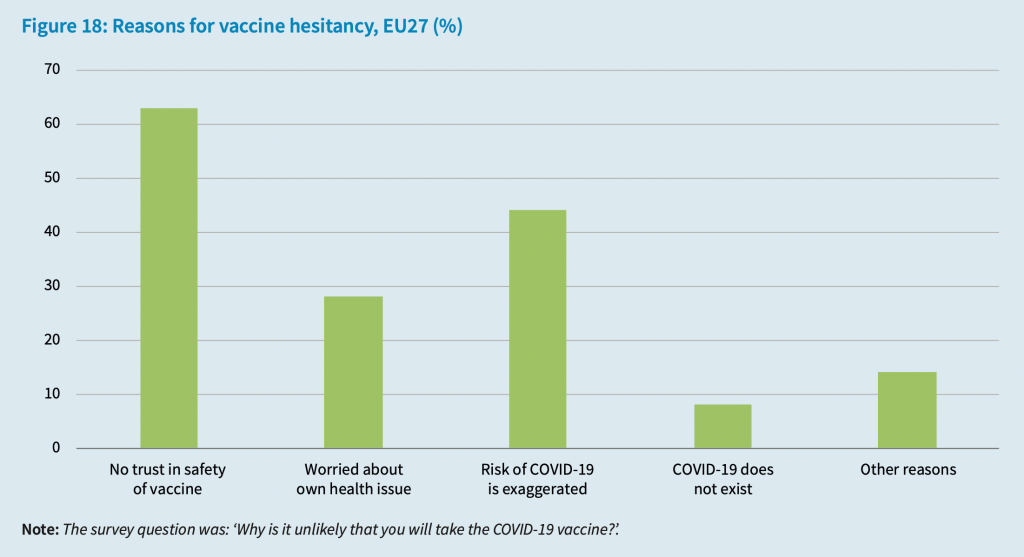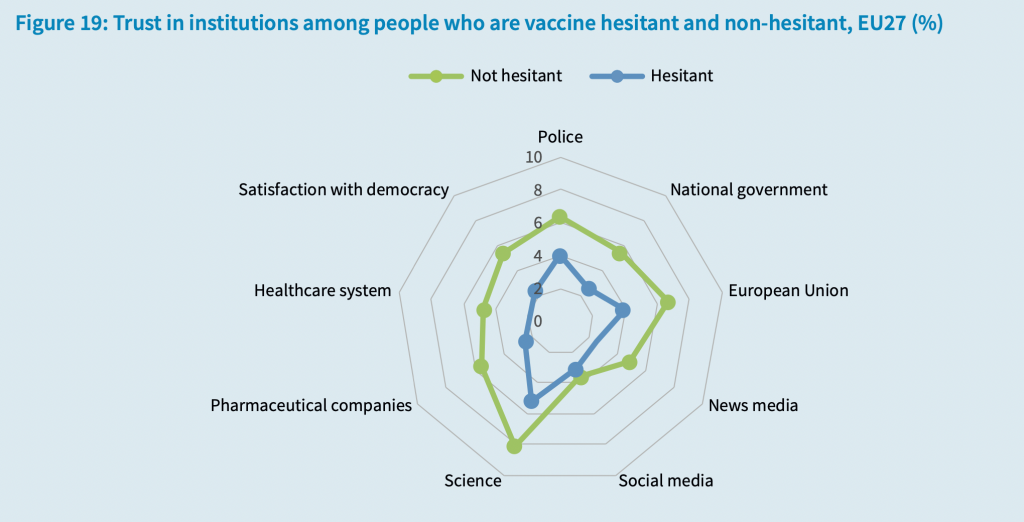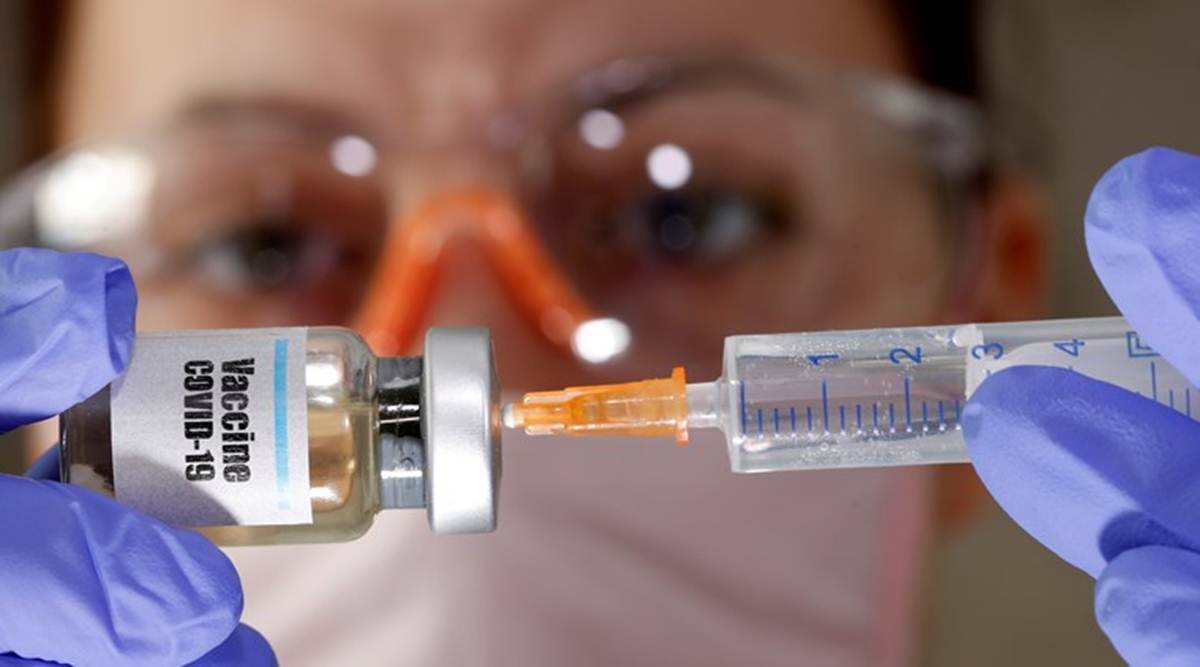More than a quarter of adults in the E.U. are either “very unlikely” or “rather unlikely” to accept a Covid vaccine, according to the results of a new survey conducted by the E.U. agency Eurofound. Here are the key findings.
The stated intention to get vaccinated varies considerably among Member States, with an important east-west divide discernible across the Union. With the notable exception of Austria and France, the intention to get vaccinated is over 60% for all western Member States – with Nordic and Mediterranean countries, Denmark and Ireland having even higher rates – while among eastern Member States the rate is dramatically lower, ranging from 59% in Romania to 33% in Bulgaria.
The report notes that people in the prime age group (aged 35-49 years) are more sceptical about vaccines (29%) than younger and older age groups (26% and 27%, respectively). Unemployed people (39%), those with a long-term illness or disability (39%) and full-time homemakers (33%) are more vaccine hesitant than people in employment (26%) or people who are retired (23%). The least vaccine averse are students (13%).
According to the survey, fielded in February and March 2021, the main reason for vaccine hesitancy is a lack of trust in the safety of the vaccine. Almost half of those who are unlikely to accept a Covid vaccine believe that the risks associated with the virus are exaggerated. Eight per cent believe that Covid doesn’t exist at all.

Trust in the news media, pharmaceutical companies, national government and national healthcare system is lower among the hesitant than the non-hesitant. Use of social media as a primary source of news and information is identified by the survey’s authors as bearing a “strong association [with] vaccine hesitancy”, despite the fact that the non-hesitant report as being more trustworthy of social media (albeit only marginally).

The survey does not distinguish between different Covid vaccines, though it is likely that hesitancy rates are greater for the AstraZeneca vaccine because of fears over its relationship with blood clotting. In Denmark, where the AstraZeneca vaccine has been dropped from the national rollout, a recent survey found that far more Danes would decline to get an AZ Covid vaccine (33%) than would refuse to get a Covid jab altogether (7%).
The results from the Eurofound survey are worth reading in full.













To join in with the discussion please make a donation to The Daily Sceptic.
Profanity and abuse will be removed and may lead to a permanent ban.